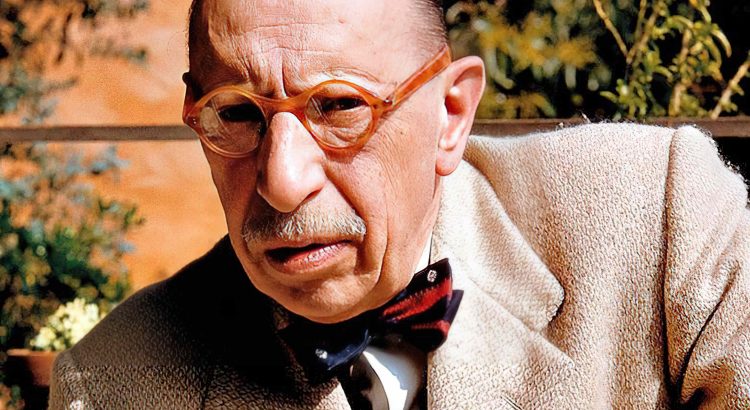I started reading Igor Stravinsky: An Autobiography today. He’s one of my favorite composers, yet I don’t know a dang thing about him. So I thought, what the heck? It begins like this:
As memory reaches back along the vista of the years, the increasing distance adds to the difficulty of seeing clearly and choosing between those incidents which make a deep impression and those which, though perhaps more important in themselves, leave no trace, and in no way influence one’s development.
Thus, one of my earliest memories of sound will seem somewhat odd.
It was in the country, where my parents, like most people of their class, spent the summer with their children. I can see it now. An enormous peasant seated on the stump of a tree. The sharp resinous tang of fresh-cut wood in my nostrils. The peasant simply clad in a short red shirt. His bare legs covered with reddish hair, on his feet birch sandals, oil his head a mop of hair as thick and as red as his beard not a white hair, yet an old man.
He was dumb, but he had a way of clicking his tongue very noisily, and the children were afraid of him. So was I. But curiosity used to triumph over fear. The children would gather round him. Then, to amuse them, he would begin to sing. This song was composed of two syllables, the only ones he could pronounce. They were devoid of any meaning, but he made them alternate with incredible dexterity in a very rapid tempo. He used to accompany this clucking in the following way: pressing the palm of his right hand under his left armpit, he would work his left arm with a rapid movement, making it press on the right hand. From beneath the red shirt he extracted a succession of sounds which were some what dubious but very rhythmic, and which might be euphemistically described as resounding kisses. This amused me beyond words, and at home I set myself with zeal to imitate this music – so often and so successfully that I was forbidden to indulge in such an indecent accompaniment. The two dull syllables which alone remained thus lost all their attraction for me.
His second memory was of groups of women singing folks songs as they returned from work each day. If you put those two sounds together (farts + folk music) and play them with an orchestra, you get a pretty good description of 20th century classical music. I think it’s all an attempt to break free of (or severely bend) tonality, and to get back to what got us excited as kids: fascinating sounds.
I had never considered what my earliest memories of sound might be. It’s possibly this: listening to vinyl records and the radio with my sister. As a young child I had a fascination with the sounds of science fiction robots. The bleeps and bloops. There was a commercial on the radio with a robot voice, possibly related to Star Wars. It amused me so much, my sister would call me into the room every time it was on. Years later, as a teenager, when I heard Steve Vai’s guitar on David Lee Roth’s Skyscraper, I thought of it as “robot & alien sounds.” I’m sure there’s a connection there.
Today, I was listening to this amusing album by Sober Legit:
https://soberlegit.bandcamp.com/album/the-two-horse-faces-of-the-smug-pocalypse
It caused me to think about the boundary between sound and music, and if there is one. I don’t think there is.
-Carl.
